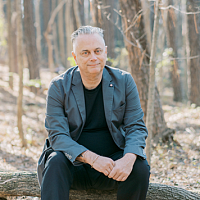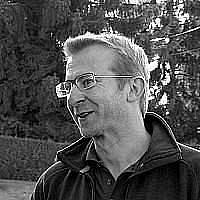Don Stikvoort is founder of the companies “S-CURE” and “Cross Your Limits”. S-CURE offers senior consultancy in the area of cyber security – specialising in CSIRT matters. Cross Your Limits coaches and trains in the human area. Based in Europe, Don’s client base is global.
After his MSc degree in Physics, he became Infantry platoon commander in the Dutch Army. In 1988 he joined the Dutch national research network SURFnet. In that capacity he was among the pioneers who together created the European Internet since November 1989. He recognised “security” as a future concern in 1991, and was chair of the 2nd CSIRT in Europe (now SURFcert) from 1992-8, and FIRST member since 1992. Today Don is a FIRST Liaison Member.
Together with Klaus-Peter Kossakowski he initiated and built the closer cooperation of European CSIRTs starting in 1993 – this led to the emergence of TF-CSIRT in 2000. In 1998 he finished the "Handbook for Computer Security Incident Response Teams (CSIRTs)" together with Kossakowski and Moira J. West-Brown of CERT/CC. He was active in the IETF and RIPE (co-creator of the IRT-object). Don chaired the Program Committee for the 1999 FIRST conference in Brisbane, Australia, and kick-started the international FIRST Secretariat in the same year. From 2001-2011 his company ran TF-CSIRT’s Trusted Introducer service. He wrote and taught several training modules for the CSIRT community.
In 1998 Don started his first company. A first assignment was to build the network connecting over 10,000 schools in The Netherlands. Many CSIRTs were created with his help and guidance, among which the Dutch national team (NCSC-NL). Second opinions, audits and maturity assessments in this field have become a specialty – and in that capacity Don developed SIM3 in 2008, the maturity model for CSIRTs which is used worldwide today for maturity assessments and certifications. SIM3 has is now under the wings of the “Open CSIRT Foundation” (OCF). Don was one of the founders in 2016 and now chairs its board.
Starting in 1999, Don was certified in NLP, Time Line Therapy®, Coaching and Hypnotherapy, and brought that under the wing of “Cross Your Limits”, which portfolio is life & executive coaching, and training courses in what Don likes to call “human arts”. He also trains communicators, presenters and trainers, including many in the CSIRT field.
Don thrives as motivational and keynote speaker. He enjoys to share his views on how the various worlds of politics, economics, psychology and daily life, but also cyber security, all intertwine and relate – and how deeper understanding and a better ability to express ourselves, increase our ability to bring good change to self as well as the world around us. He has discussed such topics all over the world, from Rome to the Australian Outback. His goal is to challenge his audience to think out-of-the-box, and motivate them to be the difference that makes the difference, along the lines of the old African proverb:
“If you think you’re too small to make a difference, try sleeping in a closed room with a mosquito”.











